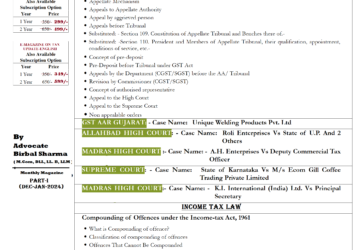SCOPE OF SECTION 156 (3) OF THE CODE OF CRIMINAL PROCEDURE || 156 OF CRPC
Preamble of our Constitution guarantees to a citizen, justice, liberty, equality and fraternity. All these are possible only when there is rule of law. The rule of law could discernibly be dissected into two well accepted concepts: (I) governance and (ii) administration of justice.
It can be said that in order to keep the wheels of our criminal justice system moving, filing of “FIR” First Information Report is most essential. The same should be done systematically. The one should must try to get the FIR filed under Section 154 of CRPC. If the police refuse to register FIR under Section 154 then the he\she must move under Section 154(3) by filing a written complaint. In case of non-registration of FIR, as per previous provisions then the he\she can move under Sec 156(3) and can approach Magistrate.

Section 156 of Crpc states that: –
According to Section 156(1) Any officer in charge of a police station may, without the order of a Magistrate, investigate any cognizable case which a Court having jurisdiction over the local area within the limits of such station would have power to inquire into or try under the provisions of Chapter XIII.
The person does not need permission from the magistrate, he can simply file an FIR. In the police have a statutory rights to investigate in any cognizable offence. No higher authority has right to interfere in it.
Supporting Case Laws
- The Hon’ble Supreme Court of India in case of Lalita Kumari ¬vs¬State of U.P. & Oth., reported in 2014(2) SCC 1, held that the registration of First Information Report is mandatory in Cognizable offences and action will be taken against the police officer for his failure to register a First Information Report on the complaint of a cognizable offence.
- State ¬Vs¬ Bhajan Lal, AIR 1992 SC 604, it has been observed by the Hon’ble Supreme Court that “The field of investigation of any cognizable offence is exclusively within the domain of the investigating agencies over which the Courts cannot have control so long as the investigation proceeds in compliance with the provisions relating to investigation.”
According to Section 156 (2) No proceeding of a police officer in any such case shall at any stage be called in question on the ground that the case was one which such officer was not empowered under this section to investigate.
According to Section 156(3) of Crpc Any Magistrate empowered under section 190 may order such an investigation as above- mentioned.
Our legislation has given a specific protection to a person in section 156(3) which provides the right to a person who can approach the court of competent jurisdiction for issuance of direction to the police officer for investigation accordance to law.
It is a exercisable at the pre-cognizance stage and the second at the post-cognizance stage when the Magistrate is in seisin of the case.. To the police officer and it is the duty of the police officer to investigate the case.
Supporting Case Laws
- Dilawar Singh vs. State of Delhi, reported in MANU/SC/ 3678/2007., The Hon’ble Court clarified that even if an FIR has been registered and the police have made the investigation, or is making the investigation, which the aggrieved person feels is not satisfactory, such a person can approach the Magistrate under Section 156(3) CrPC, and if the Magistrate is satisfied, he can order a proper investigation and may take other appropriate actions.
- In Mohd. Yousuf v. Afaq Jahan Hon’ble,Apex Court observed: (SCC p. 631, para 11) [5] that a Judicial Magistrate, before taking cognizance of the offence, may order investigation under Section 156(3) of the Code. If he does so, he should not consider the complainant’s oath because he was not taking cognizance of any offence therein.
Filing of a FIR./complaint before the police officer and if there is failure of the registration of the complaint/ FIR. by the official, then one shall approach the SSP/SP for the said purpose. However, if the complaint/ FIR. is not registered even after that, then the next remedy is to seek help from the Judicial Magistrate.
Other Post Click Below link for more
Who is a juvenile? Why does a child become a juvenile delinquent? New law of juvenile justice
Difference between Tort and Crime




